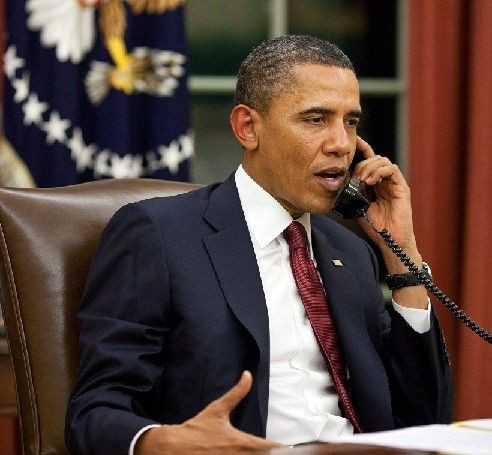Tepid April US Job Growth Makes Close 2012 US Presidential Race Even Tighter
Analysis

In U.S. real estate, real estate agents and mortgage brokers will tell you that three factors determine a home's price:
1) Location, 2) Location, 3) Location.
Well, as far as the 2012 U.S. presidential election is concerned, three factors are likely to determine whether President Barack Obama is re-elected:
1) Jobs, 2) Jobs, 3) Jobs.
True, political science research, including ground-breaking survey research in The American Voter (Campbell, et all), shows that more than one issue can affect an election, but in some years, one issue dominates. Examples include: 1992 (U.S. economy), 1980 (inflation/U.S. economy), and 1968 (Vietnam War).
And so far, the 2012 election looks like it may fall in to the one issue-dominant election category. And that issue is obvious -- jobs.
Moreover April's job report - which indicated that the U.S. economy created only 115,000 jobs, after created a disappointing 154,000 jobs in March, shows an economic expansion that's still not creating enough jobs to point the U.S. high unemployment, currently 8.1 percent, in a pronounced downward trajectory.
Further, the tepid job growth of 115,000 in April and 154,000 in March also suggests the economic expansion may be losing momentum -- not growing as fast. Each trend must reverse, if Obama hopes to be re-elected in 2012.
In other words, President Obama's electoral success will likely ride on whether the U.S. economy creates enough jobs in 2012. And so far, it hasn't, and that's bad news for Obama.
How Many Jobs Must Be Created For Obama To Be Re-Elected?
How many would represent enough jobs? If history is any indicator, at least 200,000 new jobs per month -- or enough to steadily lower that aforementioned, unacceptable U.S. unemployment rate.
In fact, history also shows that if the economy is creating jobs at a substantial rate, American voters will overlook a high unemployment rate -- just as long as economic conditions are improving and that they're confident their economic circumstance will improve.
The obvious example of the above is the 1984 presidential election, when Americans re-elected President Ronald Reagan, R-California, in a landslide despite a high unemployment rate. Reagan defeated Democrat Walter Mondale, U.S. Vice President during the Carter administration, 525-13 in the electoral college, with Mondale winning only one state -- his home state of Minnesota.
Although the U.S. unemployment rate was high then -- it averaged 7.5 percent in 1984 -- the economy was growing, with substantial job growth and the unemployment rate was falling -- i.e. economic conditions were improving -- and the American people expressed their approval of the above by re-electing the sitting president.
Other Issues Can Affect Presidential Election
To be sure, jobs / U.S. economy is not always the most important issue in a presidential election. Other issues can dominate, particularly war/peace issues and social/cultural issues.
Then there is the wildcard factor -- the unexpected can pop up, particularly regarding international affairs -- and these issues can help/hurt a president's chances, as well. One obvious one: 1979 Iran hostage crisis that hurt incumbent President Jimmy Carter's re-election chance in 1980. Another, although this one was domestic: the lingering impact of the 1974 Watergate scandal that hurt President Gerald Ford's re-election chance in 1976.
2012 Election: The Race - To-Date
However, absent the wildcard factor, the jobs issue often dominates.
Further, there's even more sobering news for Obama: as a practical matter, he has only one more jobs data-point left: the May jobs report from the U.S. Labor Department.
The reason? Even through we're seven months from the November election, most voters make up their mind whom to vote for U.S. president by Memorial Day, at the end of May. They then disengage or take the summer off politically (June, July and August), and rarely do events in the last two months of the campaign (September and October) have enough gravitas to change the short-term forces, and hence the U.S. presidential election's outcome.
In sum, the U.S.'s current job growth rate -- about 120,000 jobs per month -- is not strong enough, and the 2012 race reflects it: if the election was held today, presumed Republican Party nominee Mitt Romney could win by a significant margin.
In other words, Obama needs to use every power and mechanism at his dispposal to create more jobs, if he hopes to keep residing and working at 1600 Pennsylvania Avenue in January 2013.
--
© Copyright IBTimes 2024. All rights reserved.





















